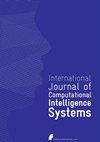OBGESS: Automating Original Bender Gestalt Test Based on One Stage Deep Learning
IF 2.9
4区 计算机科学
International Journal of Computational Intelligence Systems
Pub Date : 2023-11-13
DOI:10.1007/s44196-023-00353-z
引用次数: 0
Abstract
Abstract Hand sketch psychological data are mysterious and can be used to detect mental disorders early and prevent them from getting worse and with irreversible consequences. The Original Bender Gestalt Test is a psychology test based on hand-sketched patterns. Mental disorders require an automated scoring system. Unfortunately, there is no automatic scoring system for the Original Bender Gestalt test for adults and children with high accuracy. Automating the Original Bender Gestalt test requires 3 phases: Phase 1, collecting a comprehensive Original Bender Gestalt dataset called OBGET. Phase 2, classifying patterns by a proposed method called MYOLO V5; and Phase 3, scoring classified patterns according to associated rules of psychological standard criteria. This research reviews a comprehensive OBGET dataset that includes 817 samples, labeling samples for mental disorders by a psychologist, statistical analysis, the proposed semi-automatic labeling of patterns, patterns classification applied the proposed modified YOLO V5 called MYOLO V5, and automatic scoring of drawing patterns. MYOLO V5 accuracy is 95% and the accuracy of the proposed method called OBGESS as a mental disorder detection is 90%. In this research, a new automatic computer-aided psychological hand sketch drawing test has been proposed.基于单阶段深度学习的原始弯曲格式塔测试自动化
摘要手绘心理数据具有神秘性,可用于早期发现精神障碍,防止其恶化并造成不可逆转的后果。原始本德格式塔测试是一个基于手绘图案的心理测试。精神障碍需要一个自动评分系统。不幸的是,没有自动评分系统的原始本德格式塔测试为成人和儿童高精度。自动化原始Bender格式塔测试需要三个阶段:第一阶段,收集一个全面的原始Bender格式塔数据集,称为OBGET。第二阶段,使用MYOLO V5方法对模式进行分类;第三阶段,根据心理标准的相关规则对模式进行评分。本研究回顾了一个包含817个样本的综合OBGET数据集,由心理学家对精神障碍样本进行标记,统计分析,提出的模式半自动标记,应用改进的YOLO V5 (MYOLO V5)进行模式分类,以及绘制模式的自动评分。MYOLO V5的准确率为95%,而OBGESS作为精神障碍检测方法的准确率为90%。本研究提出了一种新的计算机辅助心理手绘测试方法。
本文章由计算机程序翻译,如有差异,请以英文原文为准。
求助全文
约1分钟内获得全文
求助全文
来源期刊

International Journal of Computational Intelligence Systems
工程技术-计算机:跨学科应用
自引率
3.40%
发文量
94
期刊介绍:
The International Journal of Computational Intelligence Systems publishes original research on all aspects of applied computational intelligence, especially targeting papers demonstrating the use of techniques and methods originating from computational intelligence theory. The core theories of computational intelligence are fuzzy logic, neural networks, evolutionary computation and probabilistic reasoning. The journal publishes only articles related to the use of computational intelligence and broadly covers the following topics:
-Autonomous reasoning-
Bio-informatics-
Cloud computing-
Condition monitoring-
Data science-
Data mining-
Data visualization-
Decision support systems-
Fault diagnosis-
Intelligent information retrieval-
Human-machine interaction and interfaces-
Image processing-
Internet and networks-
Noise analysis-
Pattern recognition-
Prediction systems-
Power (nuclear) safety systems-
Process and system control-
Real-time systems-
Risk analysis and safety-related issues-
Robotics-
Signal and image processing-
IoT and smart environments-
Systems integration-
System control-
System modelling and optimization-
Telecommunications-
Time series prediction-
Warning systems-
Virtual reality-
Web intelligence-
Deep learning
 求助内容:
求助内容: 应助结果提醒方式:
应助结果提醒方式:


